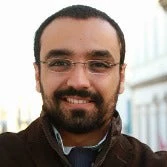 Young people played a critical role in the 2011 Tunisian revolution and have made their voices heard ever since. Yet their engagement continues to be outside mainstream politics, as reflected by the
feeble youth turnout the in 2014 legislative and presidential elections.
Young people played a critical role in the 2011 Tunisian revolution and have made their voices heard ever since. Yet their engagement continues to be outside mainstream politics, as reflected by the
feeble youth turnout the in 2014 legislative and presidential elections.
The decentralization process, which is due to take a major step with local elections planned for later this year, could change that.
At present, youth engagement is focused on mass mobilizations around sensitive issues such as corruption and accountability. One example is the I will not forgive - مانيش مسامح , movement, which includes an important number of online and civil society activists and influential Non-Governmental Organizations, that succeeded in rallying the support of many public figures and created sufficient political pressure for the temporary withdrawal of the controversial an important bill related to the economic reconciliation bill.
The same group positively welcomed the Tunisian Prime Minister’s anti-corruption efforts, which included a series of high profile arrests of figures once considered above the law. Civil society and youth groups have proved not only to be critical allies in the face of tough decisions, but their vocal support has also contributed to the increase in popularity of the Prime Minister as reflected by recent public opinion polls.
Young people are still far from claiming their seat at the decision-making table, but there is the widespread recognition of how important it is to make themselves heard on critical, policy issues. Unfortunately, nothing replaces political engagement. The question for young people is how they find their place both within and outside the political mainstream to increase their influence and ensure they have a say in the future direction of the country.
Young Tunisians aspiring to be future leaders now have an unprecedented opportunity. The scheduled municipal elections for December 2017 represents a turning point in the Tunisian political scene. As stipulated in the new constitution, municipalities will have much more autonomy, and be more accountable to their citizens, than in the past.
The country will be witnessing an important step on the path to decentralization, which will open a window for aspiring young decision makers at the local level to have a say on local public affairs. This will be a training ground for a new generation of political leaders at the local level that could breathe new life into the Tunisian political scene.
Ms. Ichrak Laayouni (23), a young marketing graduate from the High Institute of Management in Tunis, has decided to present herself for the future municipal elections in the locality of Sidi Bousaid, in the Governorate of Tunis.
“I truly believe in local governance and I would like to seize this opportunity as a young woman to represent the voice of my peers,” she said. "Youth and women are underrepresented in the decision-making sphere, and I just want to prove that we have our role and I hope that municipal elections will be only the beginning.”
Under the highly centralized decision-making system of the previous regime, municipalities had limited responsibilities and played a relatively minor role in local development. This is gradually changing.
In 2014, the World Bank launched a program to support this process. The US$300 million Urban Development and Local Governance Program is contributing to improving the capacities of local governments and increasing the participation of citizens in local decision making. The program prepares municipalities for assuming full responsibility for planning and funding their municipal investments and building new social contracts with their citizens.


Join the Conversation